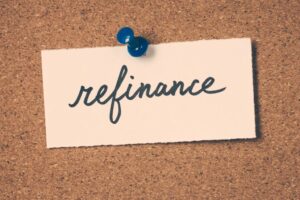If you want some help in handling your debt then the financial can be the ones that you need to consider getting in touch with. With an extensive knowledge regarding finance and its management, they will formulate the best plans that will be effective, proven and result driven. They are experts in getting the finance of their clients in shape not only for now but also for the future.
Apart from providing you with the best advice and guidance, the financial advisors also provide a number of other services such as:
- Investment management
- Estate planning and
- Income tax preparation.
However, amongst all their varied services provided, the most significant one seems to be helping you in planning a precise and proper budget. There are several good reasons to say so.
- A budget is the primary component of debt and finance management that will help you to plan your future course of action to ensure a healthy financial future. A proper budget will not let you lose control over your finance or your head even if you are overwhelmed with debt.
- The first step to craft a proper budget is to map out your cash flow in and out. This will in turn help you significantly to identify the existing as well as the potential areas that are and will create problems.
To make sure that your budge is precise and foolproof there are a few specific things that you should do when you visit the financial advisor.
First, collect all relevant documents and bring them all to the advisor so that the full picture of your finance and its health is assessed. The list of documents to bring will include:
- Your bank statements
- The credit card bills
- All installment loan statements
- Your pay stubs and
- Prepared tax returns for past few years.
You must include anything and everything else that you think will have a significant impact on your financial condition.
It is important to know at this juncture that the financial advisor may criticize you for your faulty money decisions, improper finance management and impulsive spending habits. Therefore, be mentally prepared when you step into the office of the financial advisor knowing that this intrusive and hurtful behavior of a person you have just met is aimed for your benefits and future good health of your personal finance. Since everything will be done for a productive cause and beneficial reasons, you must tell the truth and be prepared to face some harsh truths as well.
Once this obstacle and mental blockade is cleared the financial advisor will create a new and more balanced budget for you. The primary focus will be on covering all of the essentials and making sure that more debt is not added to the already overwhelming pile. That means that the advisor will find out those unnecessary expenses that can be trimmed down so that the saved money can used to create a fund that will be helpful in paying down your existing debts.
Analyzing the debts
The next step is analyzing and restructuring the debts since the nature and type of debts may vary.
- There are few debts that can be comparatively benignsuch as the mortgage loans as these carry a low interest rate and also come with full tax deductibility.
- On the other hand, there may be few debts that can be termed as downright toxicsuch as the credit card debts as these carry the highest rate of interest and add to that it also generates and accumulates fees and penalties that makes it overwhelming in a very short time.
The financial advisor will analyze your financial stability and ability first and then suggest whether or not you should opt for a debt settlement, file for a bankruptcy or take out a debt consolidation loan for that matter.
Prioritizing your debts
The advisor will prioritize your debt payback strategy by putting the delinquent accounts as well as the debts that are most expensive on top and the more modest ones at the bottom.
At this point it is worth mentioning that you may also gain additional knowledge about prioritizing your debts and the need of it by reading different blogs and articles. Even if you go through different debt consolidation reviews of different debtors you will come to know how debt prioritization helped them to deal with their debts effectively and successfully attain their financial freedom in the end.
To make sure you gain the financial freedom you desire, you must pay off the expensive debts but at the same time make sure that you continue making the minimum payments on the other accounts of lowerinterest as well. This will prevent these accounts from backsliding into the delinquent status and start to rackup overdue fees and penalties.
Restructuring your debt
The penultimate step includes restructuring your debts by the financial advisor taking a look at all the available options and choosing the most beneficial one for your purpose.
- For example, if you have a home with equity you may be advised by the financial advisor to take out a second mortgage. This money will help you to pay a considerable portion of your debt in one single payment.
- Moreover, it will be easier for you to continue repaying your second mortgage due to its lower rate of interest each month.
However, do not expect the financial advisor to do all the legwork required to get out such a loan because their job is to advice on debt relief and not seek one for you.
A significant benefit of debt restructuring is that your credit score will become better gradually as your accounts become current. This may even open the door for further renegotiation of terms with your creditors to lower the interest rates further or other unrelated things like insurance premiums.
The last step is to create a long term plan with the preliminary focus is debt reduction. They will create it with a holistic view taking care of all your specific needs.




